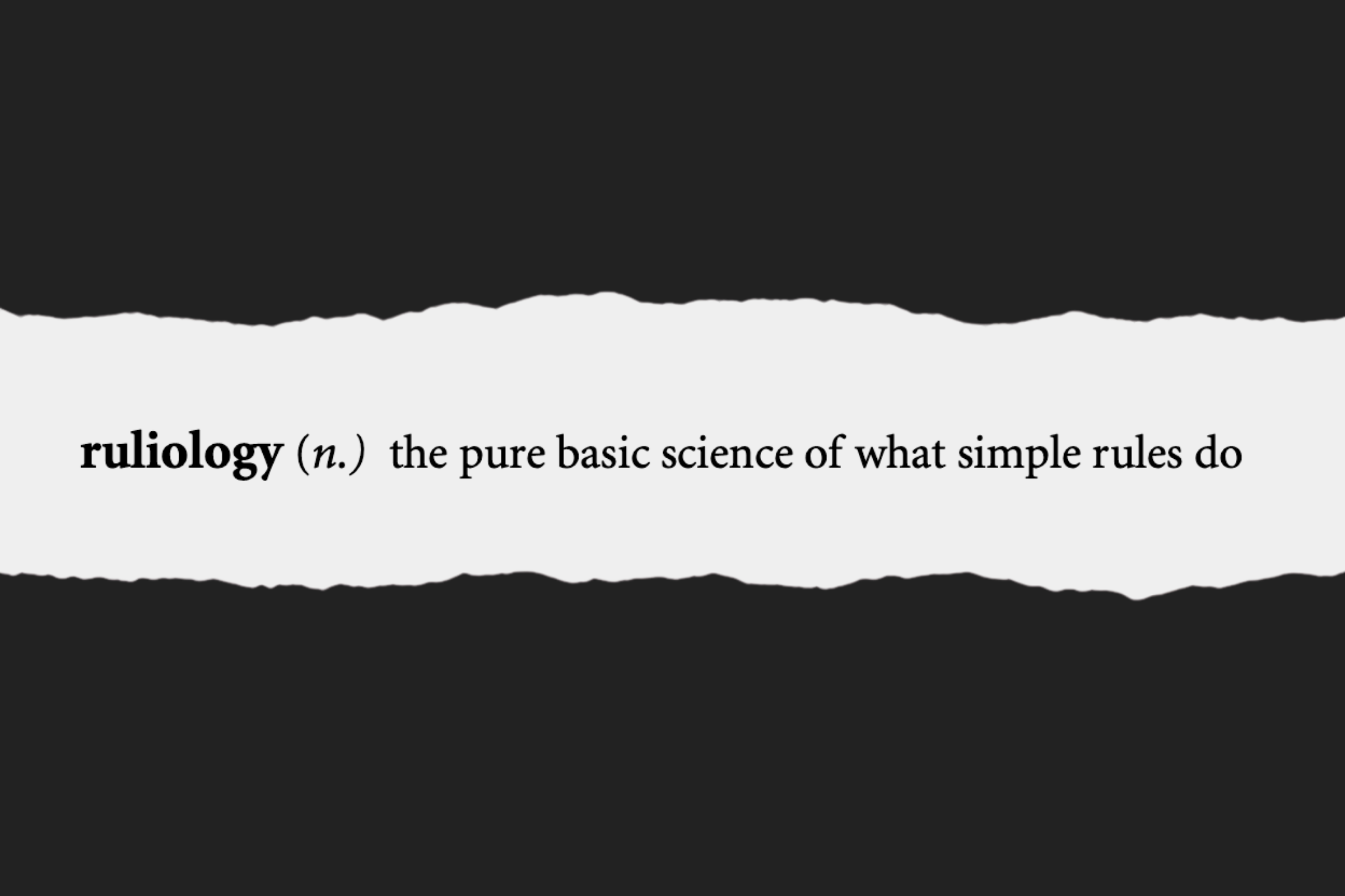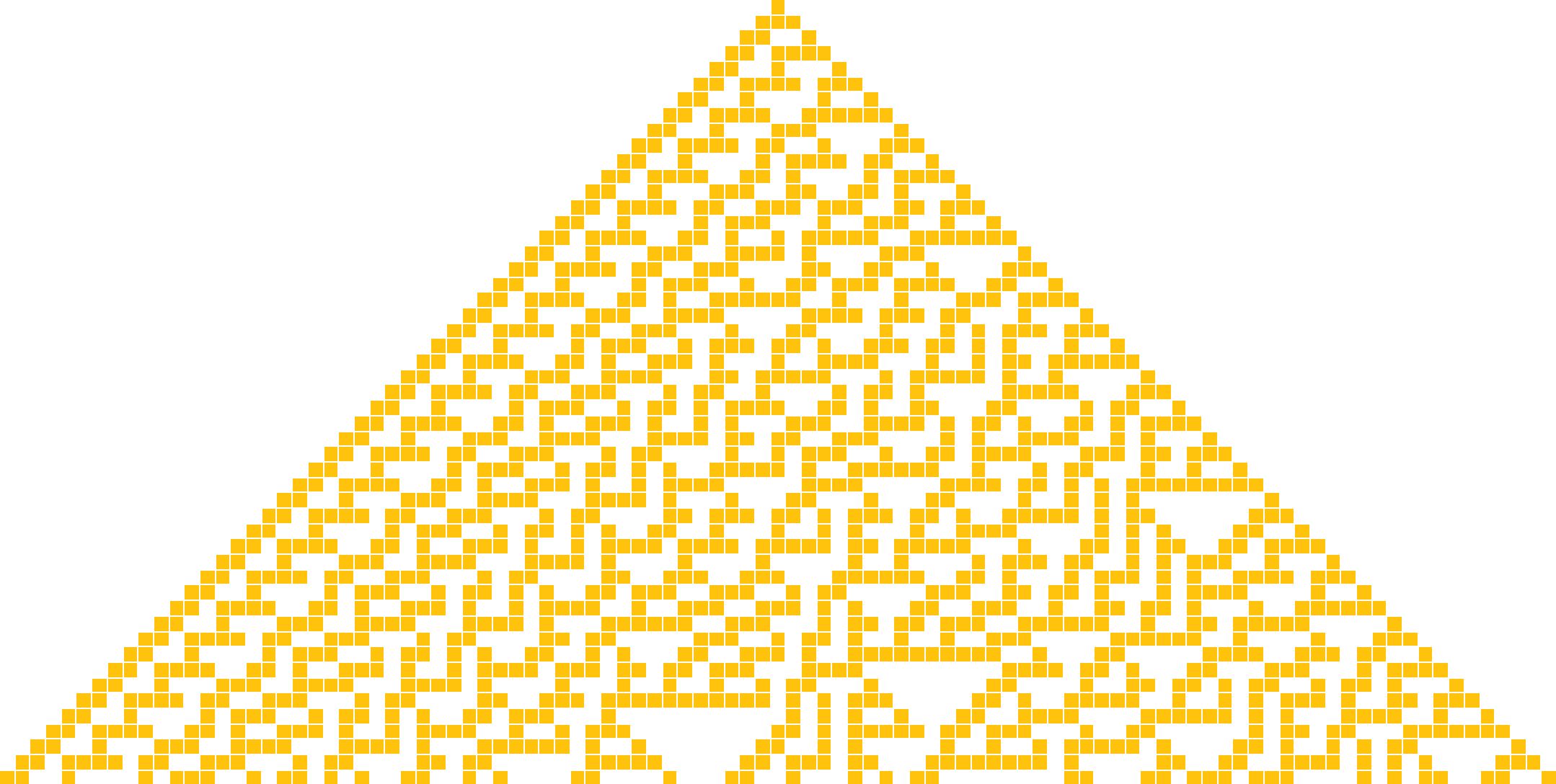Institute Output

What Is Ruliology?
Stephen Wolfram
Ruliology is taking off! And more and more people are talking about it. But what is ruliology? Since I invented the term, I decided I should write something to explain it. But then I realized: I actually already wrote something back in 2021 when I first invented the term. What I wrote back then was part of something longer. But here now is the part that explains ruliology.

What’s Special about Life? Bulk Orchestration and the Rulial Ensemble in Biology and Beyond
Stephen Wolfram
It’s a key feature of living systems, perhaps even in some ways the key feature: that even right down to a molecular scale, things are orchestrated. Molecules (or at least large ones) don’t just move around randomly, like in a liquid or a gel. Instead, what molecular biology has discovered is that there are endless active mechanisms that in effect orchestrate what even individual molecules in living systems do. But what is the result of all that orchestration? And could there perhaps be a general characterization of what happens in systems that exhibit such “bulk orchestration”?

“I Have a Theory Too”: The Challenge and Opportunity of Avocational Science
Stephen Wolfram
Most physicists term people who send such theories “crackpots”, and either discard their missives or send back derisive responses. I’ve never felt like that was the right thing to do. Somehow I’ve always felt as if there has to be a way to channel that interest and effort into something that would be constructive and fulfilling for all concerned. And maybe, just maybe, I now have at least one idea in that direction.

Kolmogorov Complexity vs. Computational Irreducibility: Understanding the Distinction
James K. Wiles
Kolmogorov complexity and computational irreducibility describe two kinds of limits on simplification, but they apply in different ways. Kolmogorov complexity measures the shortest possible description of an object, such as a string. Computational irreducibility refers to processes that cannot be predicted or accelerated. This paper introduces each concept, explains their theoretical distinction, and illustrates the difference using simple examples.

Ruliology of the “Forgotten” Code 10
Stephen Wolfram
For several years I’d been studying the question of “where complexity comes from”, for example in nature. I’d realized there was something very computational about it (and that had even led me to the concept of computational irreducibility—a term I coined just a few days before June 1, 1984). But somehow I had imagined that “true complexity” must come from something already complex or at least random. Yet here in this picture, plain as anything, complexity was just being “created”, basically from nothing. And all it took was following a very simple rule, starting from a single black cell.

Charting a Course for “Complexity”: Metamodeling, Ruliology and More
Stephen Wolfram
For me the story began nearly 50 years ago—with what I saw as a great and fundamental mystery of science. We see all sorts of complexity in nature and elsewhere. But where does it come from? How is it made? There are so many examples. Snowflakes. Galaxies. Lifeforms. Turbulence. Do they all work differently? Or is there some common underlying cause? Some essential “phenomenon of complexity”?

The Problem of Distributed Consensus
Stephen Wolfram
In any decentralized system with computers, people, databases, measuring devices or anything else one can end up with different values or results at different “nodes”. But for all sorts of reasons one often wants to agree on a single “consensus” value, that one can for example use to “make a decision and go on to the next step”.
